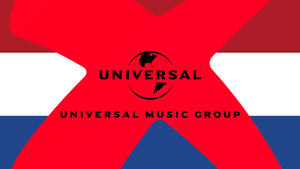Last week hedge fund boss and Universal Music board member Bill Ackman said that he wanted the major to ditch its Euronext Amsterdam stock market listing and move its “domicile and listing” to the United States. His comments followed unrest in the Dutch capital on Thursday evening which included violent antisemitic attacks against Israeli football fans who were visiting the city.
Ackman, the boss of Pershing Square Capital, which holds a 10.25% stake in Universal, posted on X on Friday saying that “events in Amsterdam” had provided the “appropriate tipping point” for his decision, which also sees him asking the board of his own company - which is dual-listed in Amsterdam and London - to yank its Amsterdam listing in favour of a single listing on the London Stock Exchange.
Concentrating Pershing’s listing on one exchange in London while also “leaving a jurisdiction that fails to protect its tourists and minority populations”, Ackman wrote, is something that combines “both good business and moral principles”.
Universal has now responded to those comments - saying it had “taken note” of Ackman's post on X before adding, “Neither UMG nor any of its other board members were involved in the formulation of the views in that post”.
Although seemingly prompted by last week’s antisemitic violence in Amsterdam, Ackman insisted there were other reasons to move Universal’s listing to the US. “UMG trades at a large discount to its intrinsic value with limited liquidity”, he said, “in significant part due to it not having its primary listing on the New York Stock Exchange or Nasdaq and not being eligible for S&P 500 and other index inclusion. We are going to fix this. Now is a good and appropriate time to do so”.
Pershing Square Holdings acquired a stake in Universal from its former owner Vivendi before the music major was spun off as a standalone company in September 2021 and listed on the Dutch stock exchange in Amsterdam.
In its new statement, Universal pointed out that - as reflected by information in the IPO prospectus the company published before listing on the Dutch stock exchange - “Pershing has the right to request a listing in the US subject to a Pershing entity selling at least $500 million in UMG shares as part of the listing”. However, the major added, the hedge fund “does not have any right to require UMG to become a US domiciled company or delist from Euronext Amsterdam”.
It then continued, “While the company will endeavour in good faith to comply with its contractual obligations with respect to undertaking the process of a US listing at the request of Pershing, any actions or decisions beyond those necessary to comply (including any decisions to change the domicile of the company) will be based on an analysis taking into account what is value maximising and in the best interests of all the shareholders of the company”.
Of course, anything that boosts the value of Universal would be welcome news in some quarters. Earlier this year the share price came within a whisker of the €30 price needed to trigger the next tranche of CEO Lucian Grainge’s mega-bonus. However, a sharp adjustment in UMG’s share price - precipitated by gloomy streaming revenue news - sent shares plummeting and wiped around 25% off the value of the company.
While Ackman highlights liquidity as a key factor here, UMG trades with an average volume of 1.4 million shares changing hands each day, not dissimilar to Warner Music and Spotify - both NYSE-listed companies - which average very similar volumes.
That said, the ‘bid ask spread’ - a key measure of liquidity - is considerably wider as a percentage of price - 0.77% versus Warner and Spotify’s 0.06% and 0.08% respectively, which - on the face of it - supports Ackman’s argument that the company could benefit from a New York listing.
Additionally, a New York listing may have a positive impact on the share price if UMG’s entry to the NYSE saw it included in key stock market indices like the S&P 500, which would mean many index funds or institutional investors would be required to buy the stock, helping to bolster the share price and long term value in the company for investors.
Section 16.5.2 of the Universal IPO prospectus means that if Pershing - rather than Ackman personally - makes a formal demand for a New York stock market listing, then Universal would have 120 days - using “commercially reasonable efforts” - to proceed with filing a registration statement with the US markets, but only if Pershing met that requirement to make $500 million of shares available for sale to facilitate the listing.
Even if that were to go ahead, though, Universal would be unlikely to drop its listing on the Amsterdam exchange, which would require approval from both Universal’s board and shareholders.

